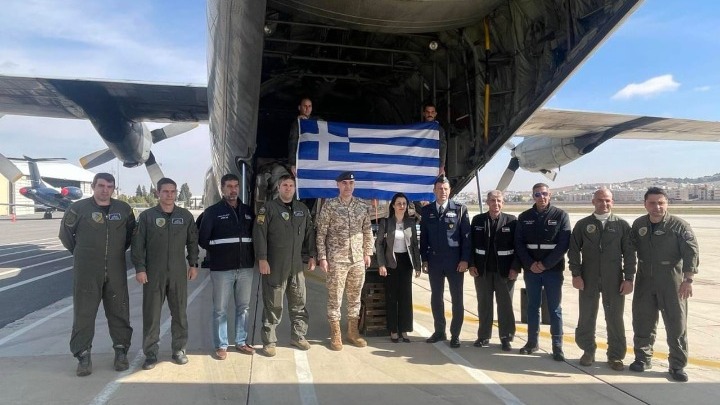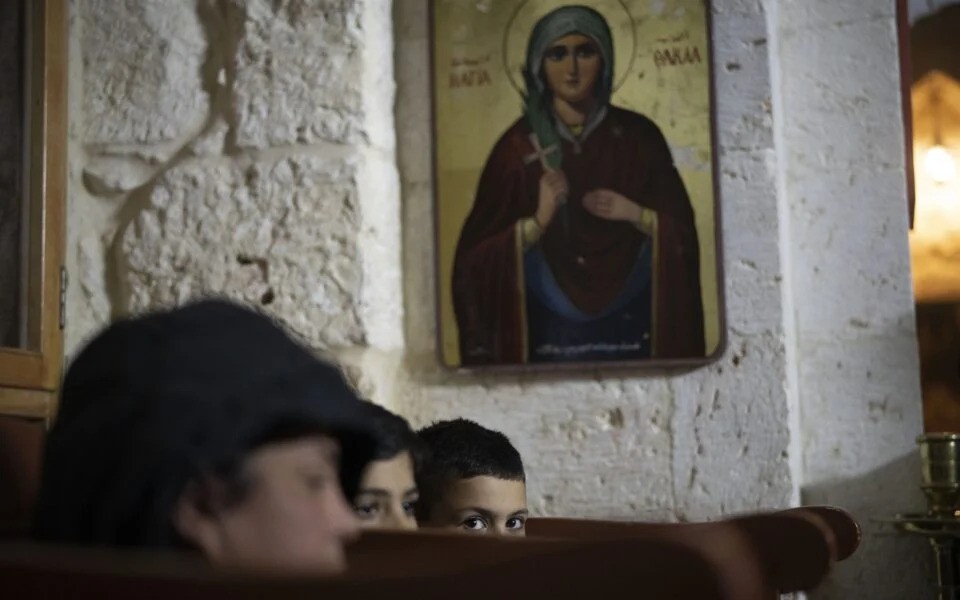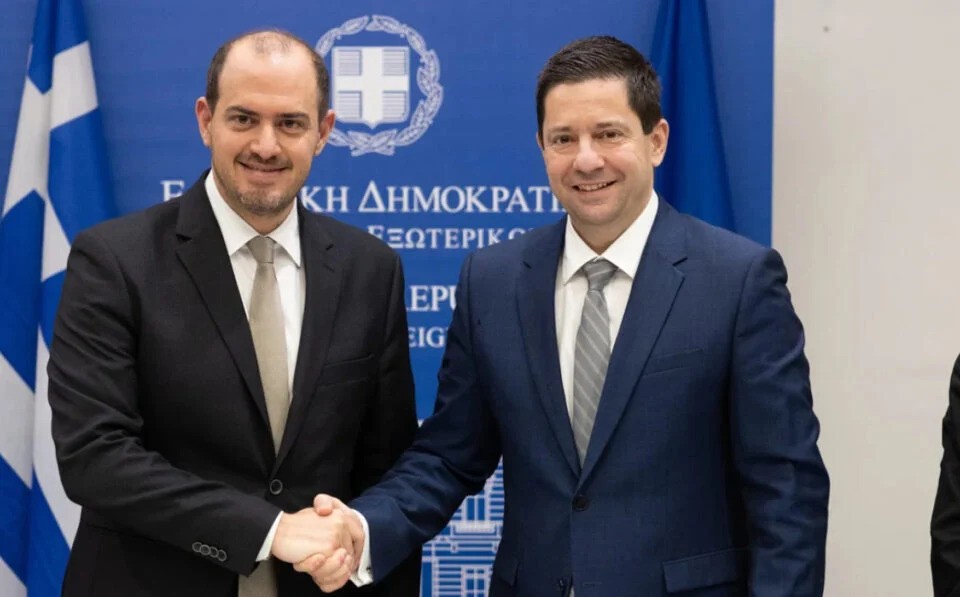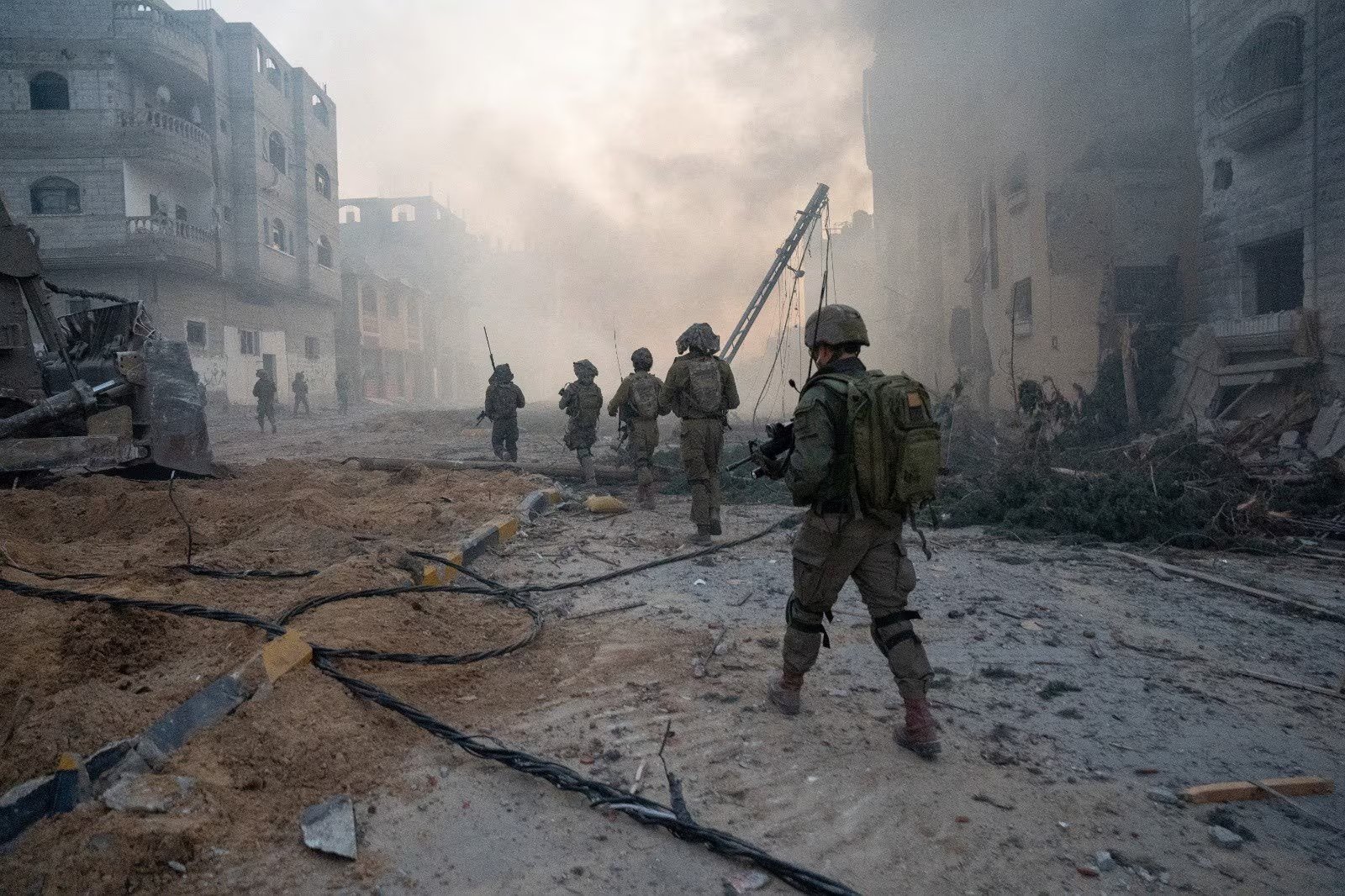Greek PM Mitsotakis joins call for 21-day ceasefire in Lebanon
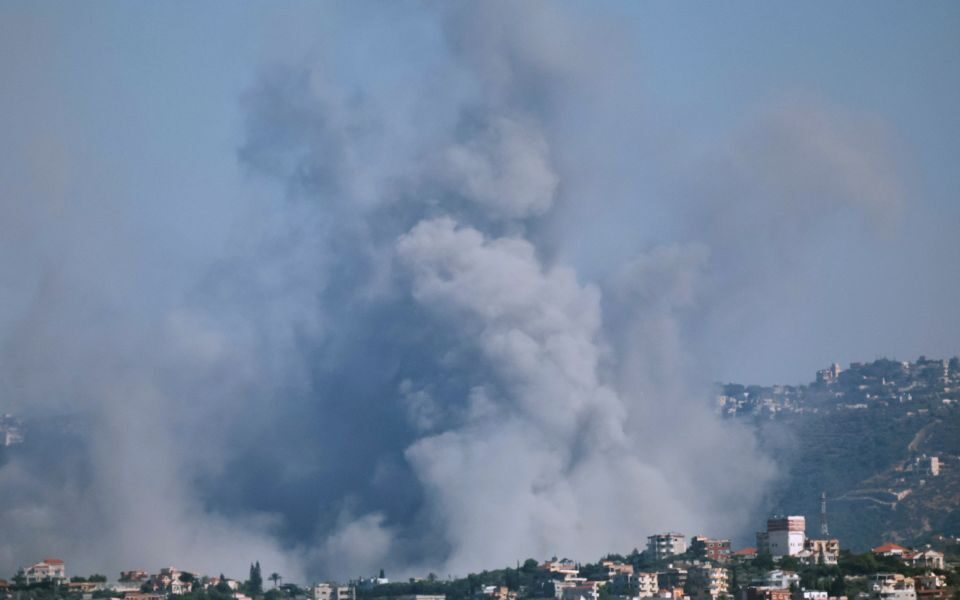

Greek Prime Minister Kyriakos Mitsotakis has expressed his support for a 21-day ceasefire in Lebanon, in a meeting with his Lebanese counterpart, Najib Mikati, on the sidelines of the UN General Assembly in New York.
The prime minister underlined the need for de-escalation in order to prevent war from spreading throughout the region and endangering regional stability.
However, Israel has rejected global calls for a ceasefire with the Hezbollah movement, defying its biggest ally, the US, and pressing ahead with strikes that have killed hundreds in Lebanon and heightened fears of an all-out regional war.
An Israeli warplane struck the edges of the capital Beirut, killing two people and wounding 15, including a woman in critical condition, Lebanon’s health ministry said. That took deaths from hits overnight and during Thursday to 28.
The strike killed the head of one of Hezbollah’s air force units, Mohammad Surur, two security sources said, the latest senior Hezbollah commander to be targeted in days of assassinations hitting the group’s top ranks.
Smoke was seen rising after the hit near an area where several Hezbollah facilities are located and many civilians also live and work. Hezbollah’s Al-Manar TV broadcast images of a damaged upper floor of a building.
On the Israeli side of the border with Lebanon, the army staged an exercise simulating a ground invasion – a potential next stage after relentless airstrikes and explosions of communications devices.
Israel has vowed to secure its north and return thousands of citizens to communities there who have evacuated since Hezbollah launched a campaign of cross-border strikes last year in solidarity with Palestinian militants fighting in Gaza.
Landing in the US to address the UN General Assembly, Israeli, Prime Minister Benjamin Netanyahu told reporters the military will keep hitting Hezbollah with “full force and we will not stop until we achieve all our goals, first and foremost returning the residents of the north safely to their homes.”
Israel’s stance has dashed hopes for a swift settlement after Lebanese Prime Minister Najib Mikati, whose government includes Hezbollah elements, had expressed hope for a ceasefire.
Hundreds of thousands of people have fled their homes during the heaviest Israeli bombardment of Lebanon since a major war in 2006.
Hezbollah has faced off against the Israeli military since the Shi’ite Muslim movement was created by Iran’s Revolutionary Guards in 1982 to counter an Israeli invasion of Lebanon. It has since evolved into Tehran’s most powerful Middle East proxy.
The US, France and several other allies urged an immediate 21-day ceasefire across the Israel-Lebanon border. They also expressed support for a ceasefire in Gaza.
Washington still seeks ceasefire
US Secretary of State Antony Blinken told MSNBC major world powers wanted a ceasefire and he would be meeting with Israeli officials in New York.
He was scheduled to meet with Israeli Minister for Strategic Affairs Ron Dermer later on Thursday.
In London, US Defense Secretary Lloyd Austin warned there was a risk of all-out war in the Middle East, but a diplomatic solution was still possible.
“So let me be clear, Israel and Lebanon can choose a different path, despite the sharp escalation in recent days, a diplomatic solution is still viable,” Austin said.
More than 600 people have been killed since Monday in Israel’s strikes on Lebanon. Hezbollah has fired hundreds of missiles at targets in Israel including its commercial hub Tel Aviv, although Israel’s aerial defense system has ensured that the damage has been limited.
On Wednesday, Israel’s army chief made the most explicit public comment yet on the possibility of a ground assault on Lebanon, telling troops near the border to be prepared to cross.
Israeli fighter jets on Thursday also hit infrastructure on the Lebanese-Syrian border to stop the transfer of weapons from Syria to Hezbollah in Lebanon, Israel’s military said.
The Lebanese health ministry said most victims on Thursday were Syrians killed in the town of Younine in the Bekaa Valley. Lebanon is home to around 1.5 million Syrians who fled civil war there.
Hezbollah said in a statement it had struck the town of Kiryat Shmona in north Israel and an Israeli military northern command base, as well as using air defence weapons to force two Israeli warplanes back.
In Beirut, thousands of Lebanese have sought shelter in schools. In one, women could be seen leaning out of classroom windows, smoking cigarettes or airing out foam mattresses they had slept on this week.
Aid organizations were distributing clothes and food, and checking on medications needed by elderly people who had fled too quickly to bring prescriptions with them.
Neighboring countries are worried about the safety of their citizens in Lebanon. Turkey is making preparations for possible evacuation of its citizens and foreign nationals from Lebanon, a Turkish defense ministry source said.
Israel has made a priority of securing its northern border and allowing the return there of some 70,000 residents displaced by near-daily exchanges of fire, which Hezbollah initiated a year ago in solidarity with the Palestinian group Hamas in Gaza.
Israel’s airstrikes have sharply intensified since Monday, when more than 550 people were killed in Lebanon’s deadliest day since the end of a 1975-1990 civil war.
The bombing follows attacks last week when pagers and walkie talkies exploded across Lebanon, killing scores of people and wounding thousands including Hezbollah members.
Source: Kathimerini/Reuters

